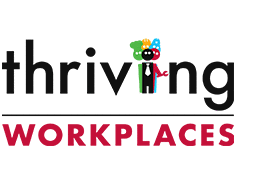
16 Oct How Leaders Can Make a Difference to Workplace Mental Health
During my career, I have had no less than three immediate line managers and three other close colleagues retire early because of ill health.
All six, in my opinion, were caused at least in part by work related pressure and stress.
I don’t believe the situation is any better now. A 2016 study by Business in the Community concluded that a majority (77%) of employees have been affected by symptoms of poor mental health and 29% have been diagnosed with a mental health condition. 62% of employees attributed their symptoms of poor mental health to work, or said that work was a contributing factor.
One of my first line managers was a guy in his fifties and like all great line managers to young people, he was like my mentor, but also sometimes like a best friend and father figure.
In those days, the early 90’s, offices were very different places and local authorities were full of characters, larger than life, vestiges of the immediate post war public sector.
Also, a cabaret entertainer at night, he made the workplace fun, often playing practical jokes, or savouring the many council estate characters we came across daily.
The day before it happened, I spent the whole afternoon with him conducting an estate walk about, looking at gardens and talking to tenants. He chatted away as usual, giving me his full repertoire of jokes and stories.
The next day his wife told me he’d had a terrible stroke. It left him weakened down one side of his body and unable to string sentences together correctly. He never recovered from it properly, or returned to work.
If I knew then, what we know now, I believe it could have been avoided. The nature of our work back then could be quite difficult. We regularly had to deal with evictions, meet rent arrears targets and sort out antisocial behaviour problems. Showing weakness at work back was not something you did and although attitudes are changing, discussing mental health is still something many people avoid. This is not surprising when you consider 15% of employees who disclosed mental ill health subsequently face dismissal, disciplinary action or demotion (BITC Survey report 2017).
Instead, he muddled through, but kept going back to smoking, yoyo dieting and he would snatch meals of sausage rolls, or cuppa soups and pour salt in like it was sugar. Knowing him as well as I did. I think these lifestyle risks he took were at least in part caused by the pressure he felt under, but couldn’t talk about.
Other colleagues who I have seen struggle in my career reacted differently to stress. One I knew become Mr Angry, others became workaholics, and some would numb their pain with drink, or by becoming remote and aloof.
Each time nothing was done by the organisation until it was too late! That is not to say they were negligent, it is just how things were and to some extent I believe still are.
Although attitudes towards mental health have changed considerably since the 90’s, employees are still reluctant to reveal if they’re struggling. Often it doesn’t come to the surface until they can no longer cope, or their health is ruined irrecoverably, or it comes to light from disciplinary action, caused by dips in performance.
Surely, we’re better than that and we owe it to ourselves and others to take workplace mental health more seriously, and encourage a more open and positive attitude towards mental health.


